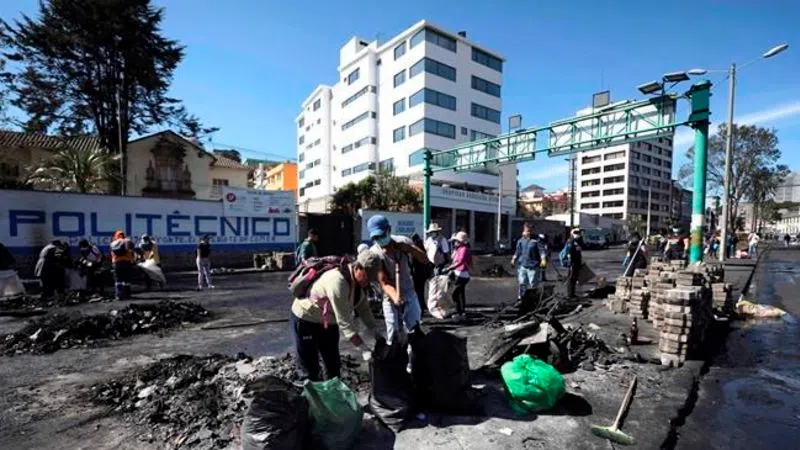
Ecuador crisis weakens president, strengthens indigenous
QUITO, Ecuador — Thousands of indigenous demonstrators, student volunteers and local residents launched a mass cleanup Monday of a Quito park where anti-austerity protesters fought police for days, leaving piles of burning tires, trees and construction material.
President Lenín Moreno signed a new decree returning gas prices to traditionally low, subsidized levels a day after striking a deal to cancel a disputed austerity package and end nearly two weeks of protests that paralyzed the Ecuadorian economy and left seven dead.
While Ecuadorians welcomed the calm and praised both sides for striking a deal, analysts said Moreno appeared to have been significantly weakened halfway through his four-year term by days of protests that forced him to reverse a policy he called necessary for the country’s future.
“I think the government has suffered a serious blow,” said Santiago Basabe, an analyst at the Latin American Institute of Social Sciences in Quito. “Its only economic reform proposal in the last two years has been reversed, and that reduces the little credibility and room for manoeuvr that it had.”
